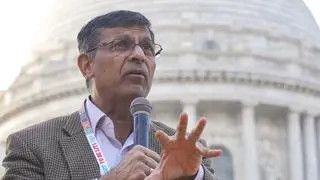The Karnataka Small Scale Industries Association (KASSIA) has said that the small and medium enterprises (SMEs) in Karnataka are facing difficult situation due to the economic slowdown.
Addressing presspersons in Mangaluru on Monday, R Raju, president, KASSIA, said that the severe slowdown in the automobile, textiles and garments, and other manufacturing segments has severely damaged the potential of the SMEs to sustain.
Stating that Karnataka has around 6 lakh SMEs, he said many units have seen a fall in business ranging from 30 per cent to 70 per cent. The number of shifts operated has been curtailed, and contract and temporary employees have lost their jobs. He said that payments are difficult to come, and the financing of operations is getting to be very difficult.
He said the government has recently taken many measures including direction to banks to go slow on recoveries, enforcement of NPA norms, and also ease the flow of credit to micro and small enterprises.
In addition the RBI has also reduced the repo rate with clear direction to the banks to link this to their lending rates. The Government has effected reduction in corporate taxes both for existing and new units, with new units getting more reduction.
However, Raju said these measures will not be of any help to micro and small enterprises as most are not incorporated.
Though the Government has introduced certain other measures such as infusing additional capital to the banking system, the MSMEs have yet to see any perceptible improvement in demand for their products and supplies, he said.
“While some of these reform measures will, no doubt, have long-term positive impact in the economy, the immediate worry, particularly for the micro and small enterprise, remains,” he said.
He urged the government to address these issues by provision of incentives for upskilling, relaxation in GST collection and reduction of GST rates, and improvement in grievances redress mechanism of GST. He also stressed the need for improvement in credit flow to the SMEs.
Highlighting the need to address key issues of the infrastructure deficit, he said investment in infrastructure will result in increased demand for goods and services, thereby helping overcome the effects of recession.







Comments
Comments have to be in English, and in full sentences. They cannot be abusive or personal. Please abide by our community guidelines for posting your comments.
We have migrated to a new commenting platform. If you are already a registered user of TheHindu Businessline and logged in, you may continue to engage with our articles. If you do not have an account please register and login to post comments. Users can access their older comments by logging into their accounts on Vuukle.